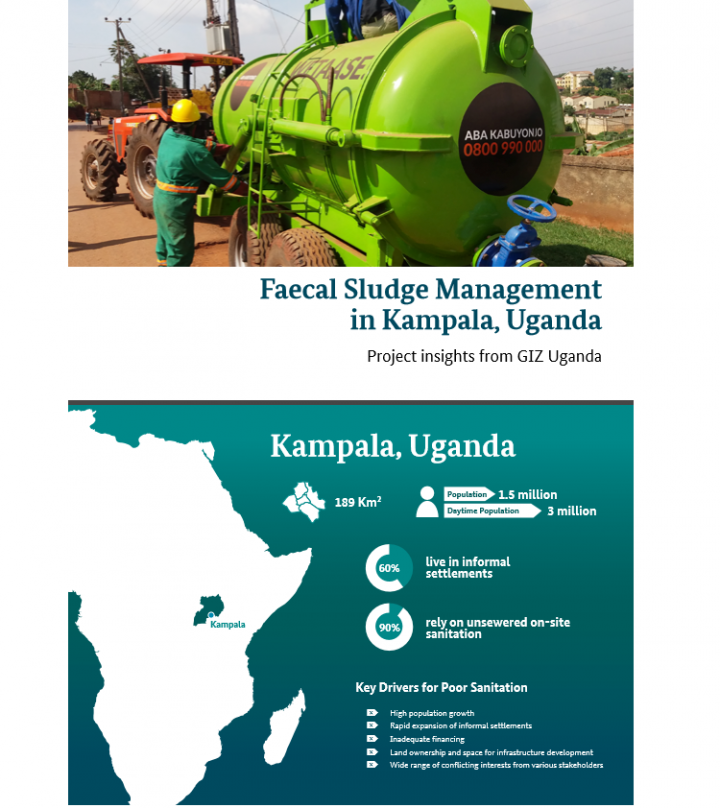
Published in: 2017
Pages: 17
Publisher:
Deutsche Gesellschaft fuer Internationale Zusammenarbeit (GIZ)
Author:
GIZ
Uploaded by:
SuSanA Admin
Partner profile:
common upload
6395 Views
689 Downloads
Location of library entry
The sanitation situation in most of Kampala can be summarized as follows:
About 90% of it’s population relies on on-site sanitation facilities (pit latrines and septic tanks) whereas 50% of households share one sanitation facility, leading to unhygienic conditions.
More than 50% of pit-latrines are un-lined and filled with solid waste and only 20 – 25% of the toilets have ever been emptied by a service provider, the rest have either been abandoned or been emptied directly into the environment, posing health and environmental risks for the city and its people.
Against this backdrop, GIZ began to support Kampala Capital City Authority (KCCA) and other key stakeholders in 2012 to improve the sanitation sector of Kampala, with funding from the German Federal Ministry for Economic Cooperation and Development (BMZ). This document highlights selected activities from the period 2015 – 2017, which were co-financed by the Swiss Agency for Development and Cooperation (SDC).
Bibliographic information
GIZ (2017). Faecal Sludge Management in Kampala, Uganda - Project insights from GIZ Uganda. Deutsche Gesellschaft fuer Internationale Zusammenarbeit (GIZ)
Filter tags
English Faecal sludge treatment processes Presentations Sub-Saharan Africa Urban (entire city)














